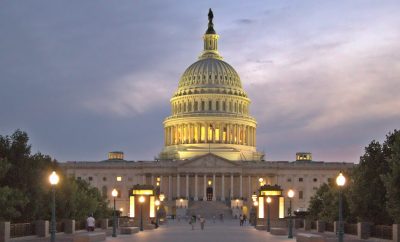 Image courtesy of [Annabelle Shemer via Flickr]
Image courtesy of [Annabelle Shemer via Flickr]
News
SCOTUS Revives Notre Dame’s Contraception Mandate Objections
The University of Notre Dame, a Roman Catholic institution, may now resume its battle against birth control after the Supreme Court revived its religious objections to the government contraceptive coverage requirements. The whole debate boils down to an Obamacare provision that has religious opponents in this case advocating for some separation between church and state.
The 2010 Affordable Care Act, otherwise known as Obamacare, has been a topic of contention for some religious organizations unwilling to adhere to its contraception provision. The act mandates employers supply health insurance policies to their female employees that cover contraception and sterilization, but detractors say that violates their religious beliefs.
Christian business Hobby Lobby battled boycotts while defending their moral opposition to the act last summer in the Supreme Court and won. Burwell v. Hobby Lobby Stores, Inc.‘s landmark decision in favor of Hobby Lobby set a precedent for other religious organizations to seek exemptions from the law due to their religious preferences, based on the Religious Freedom Restoration Act. The justices asked the 7th U.S. Circuit Court of Appeals to reconsider its decision for the Catholic university in light of that ruling.
According to Reuters, the lower court threw out a February 2014 appeals court ruling denying Notre Dame an injunction against the requirement. The appeals court ruling pre-dated the Supreme Court’s June 2014 Hobby Lobby exemption decision. Despite the landmark decision, courts have continued to hear cases on the issue, but have all decided in favor of the government, finding “the compromise does not impose a substantial burden on the plaintiffs’ religious beliefs.”
Louise Melling, deputy legal director for the American Civil Liberties Union, discussed Notre Dame’s objections with the Wall Street Journal. She advocated for women’s rights, saying:
It’s absurd to assert that simply filling out a form stating an objection violates religious freedom. What Notre Dame and others really object to is women getting the contraceptive coverage they need. That’s discrimination, plain and simple.
The Catholic church and some Christian opponents don’t see the issue as discrimination, but rather a violation of their rights to represent their beliefs while operating private businesses. Catholicism has historically been opposed to all forms of birth control except abstinence and natural family planning. So, insurance plans that cover birth control, especially in the form of emergency contraception like the Plan B pill and intrauterine devices, stand contradictory to their beliefs.
However, the church may be loosening its stance some when it comes to sex. Pope Francis, who has been recently hailed as a revolutionary force in the Catholic Church, was just quoted saying “Catholics needn’t feel compelled to breed like rabbits.” Even so, following the church’s voice on sexual matters has become less and less important for modern Catholics. The New York Times broke down Gallup’s “Values and Beliefs” survey from last May finding:
Catholics were only slightly less open to birth control, with 86 percent of them saying that it was “morally acceptable” in comparison with 90 percent of all respondents. But Catholics were more permissive than all respondents when it came to sex outside marriage (acceptable to 72 percent of Catholics versus 66 percent of Americans overall) and gay and lesbian relationships (70 percent versus 58).
Regardless of the feelings of average Americans, however, Notre Dame has stuck to the lawsuit.
Overall this battle between church and state is a fight over health vs. morals. Providing adequate health care coverage for employees is an employer’s responsibility, and maintaining sexual and reproductive health is essential to all women’s wellbeing. The Supreme Court’s decision and reexamination of Notre Dame’s objections may mean some women will have to decide whether or not they’re willing to forfeit that right to adhere with company culture when choosing to work for a religious organization.








Comments